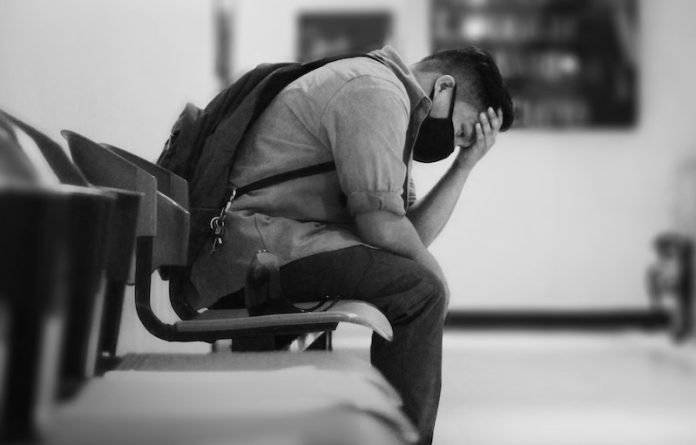
In a study from UC San Francisco and elsewhere, scientists found that patients with COVID-19 who also had post-traumatic stress disorder (PTSD) were more likely to die or be hospitalized than those without a psychiatric disorder.
They found that veterans with PTSD had an 8% increased risk of death if they had COVID and a 9% increased risk of hospitalization, compared with people with the virus and without a psychiatric diagnosis.
For patients with other mental illnesses, the risks were substantially higher.
The researchers also quantified the risks for patients with other psychiatric disorders, corroborating findings from other studies.
Those with psychosis had a 58% increased risk of death and a 66% increased risk of hospitalization, relative to those without psychiatric diagnoses.
For those with bipolar disorder, the increased risks of death and hospitalization were 29% and 46%, respectively; for major depression, they were 13% and 21%, respectively.
In the study, the researchers tracked data from more than a quarter of a million veterans enrolled in the United States Department of Veterans Affairs health care services.
In total, 6% of the veterans had died and 15% had been hospitalized within 60 days of testing positive.
The average age of the veterans was 60 and 90% were male. Some 26% had PTSD and a further 28% had a different psychiatric diagnosis.
Surprisingly, the PTSD group fared better than patients with all other psychiatric disorders, including adjustment disorder, anxiety, and alcohol use and substance use disorders.
The researchers also found that patients with substance or alcohol use disorder were much more likely to be hospitalized for COVID: 62% and 45%, respectively.
But death risks were about the same as those without a psychiatric diagnosis, indicating a lack of caregiver or social support.
An increased incidence of homelessness could be driving these higher hospitalization rates.
The team suggests that unhealthy habits like physical inactivity, a poor diet, and smoking, as well as co-occurring medical conditions, may contribute to worse outcomes of COVID for patients with PTSD and other mental illnesses.
Other mechanisms that could account for higher risks for patients with mental illness include elevated inflammation and dysregulated immune functioning.
If you care about the pandemic, please read studies about new evidence on rare blood clots after COVID-19 vaccination, and new therapy from bananas may help treat COVID-19.
For more information about health, please see recent studies about four easy ways to reduce your risk of severe COVID-19, and results showing Vitamin D could help reduce depression symptoms.
The study was conducted by Kristen Nishimi et al and published in Translational Psychiatry.
Copyright © 2022 Knowridge Science Report. All rights reserved.



